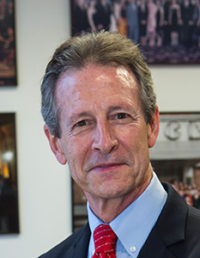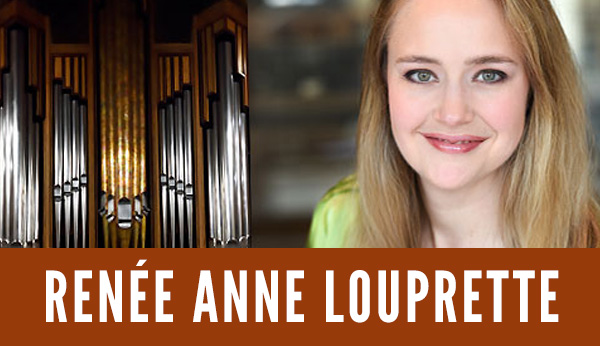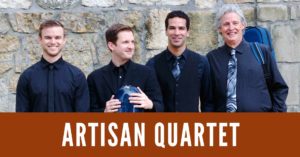RENÉE ANNE LOUPRETTE, ORGANIST
Wednesday, June 9, 2021 | 7:30 PM
First United Methodist Church
Visser-Rowland Pipe Organ
Prelude, Trio, and Fugue in G Major, BWV 541
Three movement version, with Un poc’ allegro from Trio Sonata No. 4, BWV 528
CLARA SCHUMANN (1819-1896)
Three Preludes and Fugues, Op. 16
II. Prelude and Fugue in B-flat Major
III. Prelude and Fugue in D minor
Three chorales of comfort
J.S. BACH
O Lamm Gottes, unschuldig (O Lamb of God, innocent), BWV 618
J.S. BACH / C.P.E. BACH (1714-1788)
Ich ruf zu dir, Herr Jesu Christ (I call to you, Lord Jesus Christ), BWV Anh. II 73
J.S. BACH
Liebster Jesu, wir sind hier (Blessed Jesus, we are here), BWV 731
J.S. BACH
Prelude and Fugue in E minor (“Wedge”), BWV 548
Learn before you listenJoin us at 6:30 p.m. for a pre-concert talk with George Stauffer, Distinguished Professor of Music History at Rutgers University’s Mason Gross School of the Arts. |
 |
| This evening’s concert is offered in memory of former VBF Board member Robert Martin. |  |

Sponsors
Darrell G. & Carol Rangnow
John Martin
Dr. Suzanne & Larry LaBrecque
Virginia Welder
This concert is generously supported by our concert sponsors and by donors to the Victoria Bach Festival’s Annual Fund. Many thanks to our generous supporters!
About the Artist

“She presented herself as a communicative player with no shortage of imaginative ideas, with fingers fully capable of backing them up, and with feet which are not just nimble on the pedals, but every bit as expressively articulate as her fingers.” (Michael Dervan, The Irish Times)
Hailed by The New York Times as “splendid,” and “one of New York’s finest organists,” Renée Anne Louprette has established an international career as organ recitalist, accompanist, conductor, and teacher. She is College Organist and Director of the Baroque Ensemble at Bard College in New York, and University Organist and Organ Program Coordinator at Mason Gross School of the Arts, Rutgers University in New Jersey. She has also served on the organ faculties of the Manhattan School of Music, The Hartt School of the University of Hartford, and the John J. Cali School of Music at Montclair State University.
Louprette has performed with the Mostly Mozart Festival Orchestra, Voices of Ascension, American Symphony Orchestra, New York Choral Society, and Piffaro, among other New York ensembles. In the 2018-19 season, Louprette made her solo organ debuts at Royal Festival Hall in London, Walt Disney Concert Hall in Los Angeles, the Cathedral of Notre Dame in Paris, and with the American Brass Quintet. She has concertized throughout North America, Europe, and Australia. She will return to Europe in the summer of 2021 for a series of recitals in Romania, Germany, and Scandinavia and will be a featured soloist in the 2021 Bard Music Festival, “Nadia Boulanger and her world.”
Louprette’s recording of J.S. Bach’s “Great Eighteen Chorales” on the Acis label was named a classical music Critics’ Choice 2014 by The New York Times. She released a recording of 20th-century French organ repertoire – “Une voix française – A French Voice” – in 2018 to critical acclaim, and a collaborative recording of original compositions and arrangements of traditional Irish repertoire with uilleann piper Ivan Goff in 2019, both recorded at the Church of St. Ignatius Loyola in New York City. Her latest recording of Bach’s Clavier-Übung III, recorded on the Craighead-Saunders organ of Christ Church, Rochester, New York, is due for release in 2021.
Renée Anne Louprette holds a Master’s degree in conducting from Bard College Conservatory, a Bachelor of Music degree summa cum laude in piano performance and Graduate Professional Diploma in organ performance from The Hartt School, University of Hartford. She was awarded a Premier Prix – mention très bien from the Conservatoire National de Région de Toulouse, France and a Diplôme Supérieur in organ performance from the Centre d’Études Supérieures de Musique et de Danse de Toulouse, studying with Michel Bouvard and Jan Willem Jansen and improvisation with Philippe Lefebvre.
Renée Anne Louprette is represented in North America exclusively by Phillip Truckenbrod Concert Artists, LLC.
The Prelude and Fugue in G major, BWV 541, was probably written between 1708 and 1717 while Bach was living in Weimar, but was revised after 1740. It opens with a triumphant upward triad and develops in a playful, joyous mood. The fugue movement takes a somewhat darker, driving tone that moves to more dissonant intervals as it progresses. The Prelude and Fugue in G major was used by Bach’s son, Wilhelm Friedemann Bach, as an audition piece for an organist post. The young W. F. Bach secured the position.
In 1845, the composers Robert and Clara Schumann embarked on a feverish study of counterpoint, including the fugues and canons of J.S. Bach. Bach’s influence on Clara Schumann’s Three Preludes and Fugues, op. 16. is evident, but the piece remains most definitely of its era, capturing the mood of a Romantic nocturne.
Bach wrote both sacred and secular music, but his vocation as a church musician revealed a deep understanding of theology and is some of his most moving work. His cycles of chorale preludes based on Lutheran hymns are poignant, comforting compositions.
The Prelude and Fugue in E Minor (“Wedge”), BWV 548, dates from around 1728, when Bach was living in Leipzig. The “Wedge,” so named for the work’s ever-expanding intervals, is Bach’s longest, and arguably most challenging, organ fugue.
Joy and Comfort
The Prelude and Fugue in G major, BWV 541, was probably written between 1708 and 1717 while Bach was living in Weimar, but was revised after 1740. It opens with a triumphant upward triad and develops in a playful, joyous mood. The fugue movement takes a somewhat darker, driving tone that moves to more dissonant intervals as it progresses. The Prelude and Fugue in G major was used by Bach’s son, Wilhelm Friedemann Bach, as an audition piece for an organist post. The young W. F. Bach secured the position.
In 1845, the composers Robert and Clara Schumann embarked on a feverish study of counterpoint, including the fugues and canons of J.S. Bach. Bach’s influence on Clara Schumann’s Three Preludes and Fugues, op. 16. is evident, but the piece remains most definitely of its era, capturing the mood of a Romantic nocturne.
Bach wrote both sacred and secular music, but his vocation as a church musician revealed a deep understanding of theology and is some of his most moving work. His cycles of chorale preludes based on Lutheran hymns are poignant, comforting compositions.
The Prelude and Fugue in E Minor (“Wedge”), BWV 548, dates from around 1728, when Bach was living in Leipzig. The “Wedge,” so named for the work’s ever-expanding intervals, is Bach’s longest, and arguably most challenging, organ fugue.
About the Speaker




